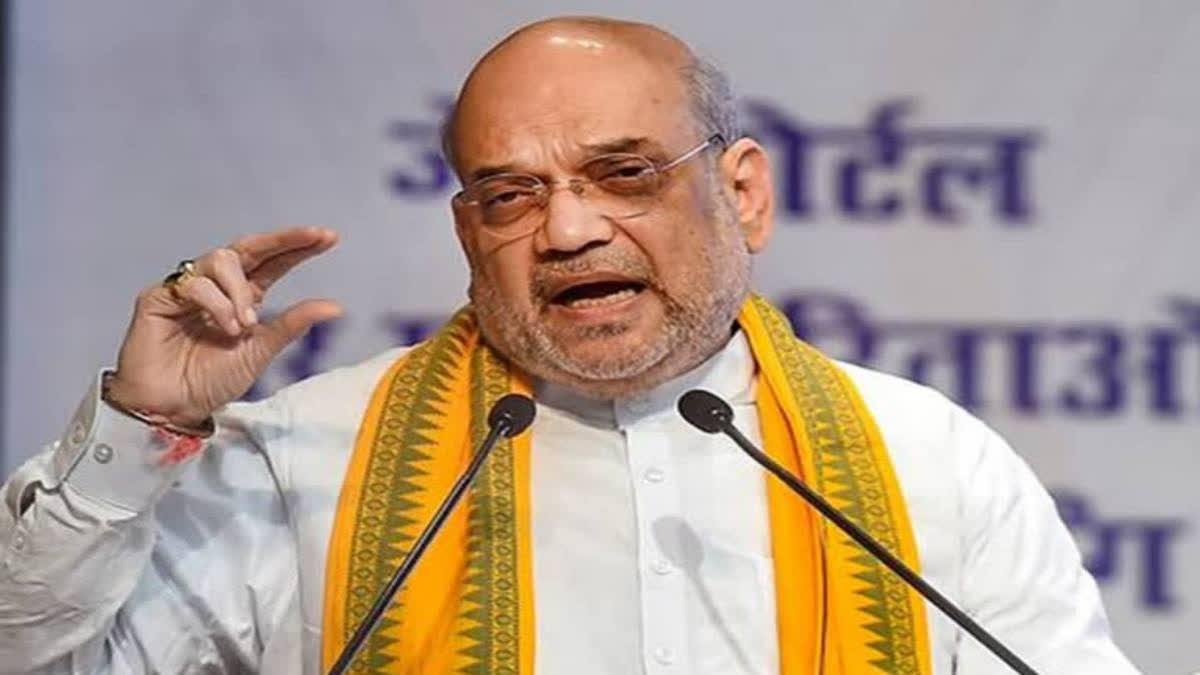New Delhi: As India started implementing three new criminal laws on Monday, Union Home Minister Amit Shah said that following the implementation of the new laws, judgment in criminal cases had to come within 45 days of completion of trial and charges must be framed within 60 days of the first hearing.
“Judicial process would now be time bound and the new laws set time limits for the judicial system, ending long delays,” he said. As opposition parties continue their protest against the three laws, Bharatiya Nyaya Sanhita (BNS), Bharatiya Nagarik Suraksha Sanhita (BNSS) and Bharatiya Sakshya Adhiniyam (BSA), Home Minister Shah reiterated that the laws will make a total change of the Indian criminal justice system.
“With the implementation of the three criminal laws, India would have the most modern criminal justice system in the world,” said Shah. The new laws replaced the British-era Indian Penal Code, Code of Criminal Procedure and the Indian Evidence Act.
Highlighting crime against children and women, Shah said that the new laws were made more sensitive by adding a chapter on crimes against children and women and the inquiry report in such cases was to be filed within seven days.
The new laws prioritised the investigations for offences against women and children, ensuring timely completion within two months of recording information. According to the new laws, courts can grant a maximum of two adjournments to avoid unnecessary delays in case hearings, ensuring timely justice delivery.
“The new laws brought in a modern justice system, incorporating provisions such as Zero FIR, online registration of police complaints, summons through electronic modes such as SMS and mandatory videography of crime scenes for all heinous crimes,” he said.
According to Shah, the new laws would give priority to providing justice, unlike the colonial-era laws that gave primacy to penal action and made reporting of crimes even easier by recognising e-FIR, Zero FIR and electronic or digital evidence.
“Organised crime, acts of terrorism and mob lynching had been defined, sedition was replaced with treason and video recording of all search and seizures made mandatory,” said Shah.
“Buying and selling of any child made a heinous crime and a provision for death sentence or life imprisonment for gang rape of a minor included,” he said.
Significantly, under the new laws, a person can now report incidents by electronic communication, without the need to physically visit a police station. “This allows for easier and quicker reporting, facilitating prompt action by the police,” said Shah.
He informed that the first case under the new laws was about a motorcycle theft registered in Madhya Pradesh’s Gwalior at 10 minutes past midnight.
Time-Bound Procedures Under the New Laws
FIRs need to be registered within three days for complaints submitted through electronic communication. In sexual offences, a medical examination report needs to be forwarded within seven days. Victims are entitled to regular updates on the progress of their case within 90 days. As per the new laws, magistrates are required to frame charges within 60 days from the date on which documents are supplied.
View of Constitutional Expert
Renowned constitutional expert and senior Supreme Court advocate Satyaprakash Singh termed the new laws as revolutionary changes in the Indian criminal justice system. He, however, admitted that it would take some time for total implementation of the laws.
“The new laws, which replace the pre-independence laws are welcome. This will bring a sea change in the Indian criminal justice system as the laws talked about time-bound delivery of justice,” said Singh and added, “As we have been following the old criminal justice system, it will take some time for a total change of the process.”
A senior official in the Home Ministry told this correspondent that all the States have been advised to give proper training to their police officers concerned for the proper and first implementation of the new laws.
It is worth mentioning that for capacity building, the Bureau of Police Research and Development (BPR&D) has developed training modules and shared them with all the stakeholders.
BPR&D also conducted 250 training courses, webinars and seminars in which 40,317 officers and personnel have been trained. The States and UTs have also undertaken capacity building of 5,84,174, including 5,65,746 police officers and personnel from prison, forensics, judicial and prosecution.
iGOT- Karmayogi Bharat and BPR&D are also offering three training courses each on the new Criminal Laws in which 2,17,985 officials have enrolled so far.
Laws In All Eight Scheduled Indian Languages
Shah said that all three laws are to be available in all the eight scheduled languages and cases will also be conducted in those languages.
Mandatory forensic investigation
The new laws have made forensic investigation mandatory in offences punishable by 7 years or more, which will help speed up justice and take the conviction rate up to 90 per cent. Shah said that trained manpower will be required for this purpose and in the country, there will be more than 40,000 trained manpower after three years.
Technology Adoption
According to Shah, technology has not only been adopted in the three new laws but provision has also been made in such a way that all the technologies that will come in the next 50 years can be included in it. 99.9 per cent of police stations across the country have been computerised and the process of generating e-records was already started in 2019.
Read more: Colonial-Era Laws Are Over As New Criminal Laws Take Effect Today; What It Means



